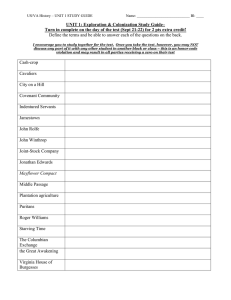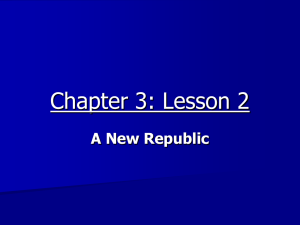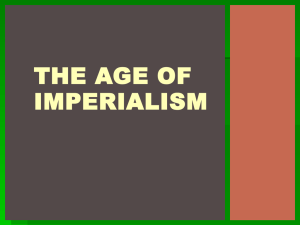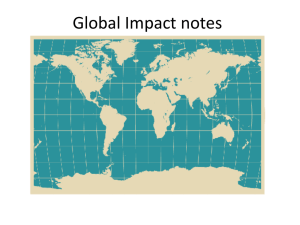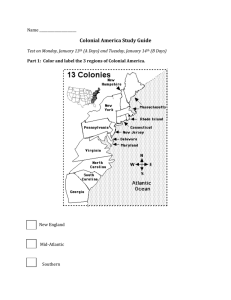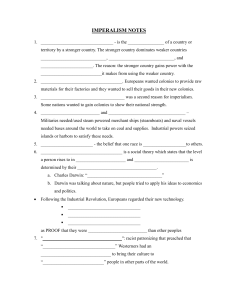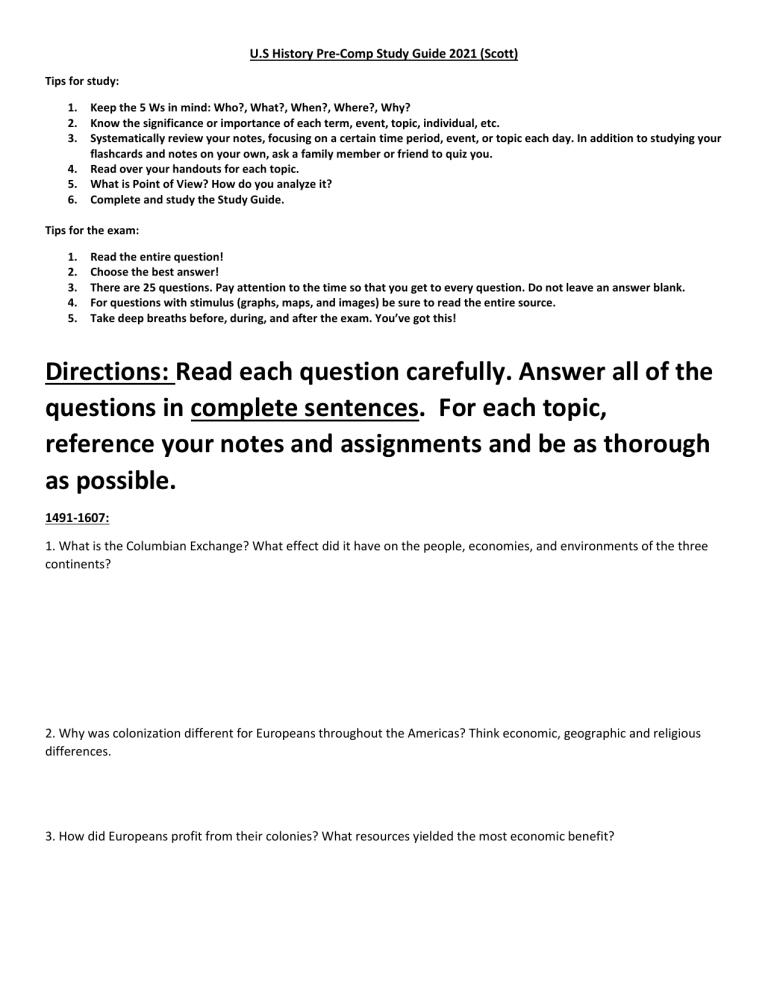
U.S History Pre-Comp Study Guide 2021 (Scott) Tips for study: 1. 2. 3. 4. 5. 6. Keep the 5 Ws in mind: Who?, What?, When?, Where?, Why? Know the significance or importance of each term, event, topic, individual, etc. Systematically review your notes, focusing on a certain time period, event, or topic each day. In addition to studying your flashcards and notes on your own, ask a family member or friend to quiz you. Read over your handouts for each topic. What is Point of View? How do you analyze it? Complete and study the Study Guide. Tips for the exam: 1. 2. 3. 4. 5. Read the entire question! Choose the best answer! There are 25 questions. Pay attention to the time so that you get to every question. Do not leave an answer blank. For questions with stimulus (graphs, maps, and images) be sure to read the entire source. Take deep breaths before, during, and after the exam. You’ve got this! Directions: Read each question carefully. Answer all of the questions in complete sentences. For each topic, reference your notes and assignments and be as thorough as possible. 1491-1607: 1. What is the Columbian Exchange? What effect did it have on the people, economies, and environments of the three continents? 2. Why was colonization different for Europeans throughout the Americas? Think economic, geographic and religious differences. 3. How did Europeans profit from their colonies? What resources yielded the most economic benefit? 4. What were the interactions between Natives and Europeans? Give specific examples of actions by Europeans and reactions by the natives. a. The Spanish b. The French c. The English 1607-1754: 5. Where, geographically, did the first British colonists settle? 6. Why did they come to America? Differentiate between the two early colonies. a. New England Colonies: b. Jamestown (Virginia) 7. What economic theory did England try to use to control its colonies? Give examples of it during this period. 8. What was it called when the English neglected to enforce their rules? 9. What major intellectual and philosophical movement shaped the ideas of prominent, educated Americans during this period? Name three philosophers associated with this movement. a. b. c. 10. What was triangular trade? Explain the social and economic motivations and consequences of this trade route. Draw an illustration of it. 1754-1800 11. What MAJOR event marks the separation between this period and the former one? 12. Why was this event important? How did it, and the actions of the British government following it, shape colonial attitudes towards Great Britain? 13. What were the causes and consequences of Pontiac’s War (Rebellion)? 14. Trace the colonial actions and British response to the following: The first one is done for you. The Navigation Acts The Molasses Act Proclamation of 1763 The Quartering Act The Stamp Act The Declaratory Act The Townshend Acts The Tea Act The Coercive (Intolerable Acts) Battles of Lexington and Concord The Olive Branch Petition Colonial Action British Response smuggling largely unenforced
